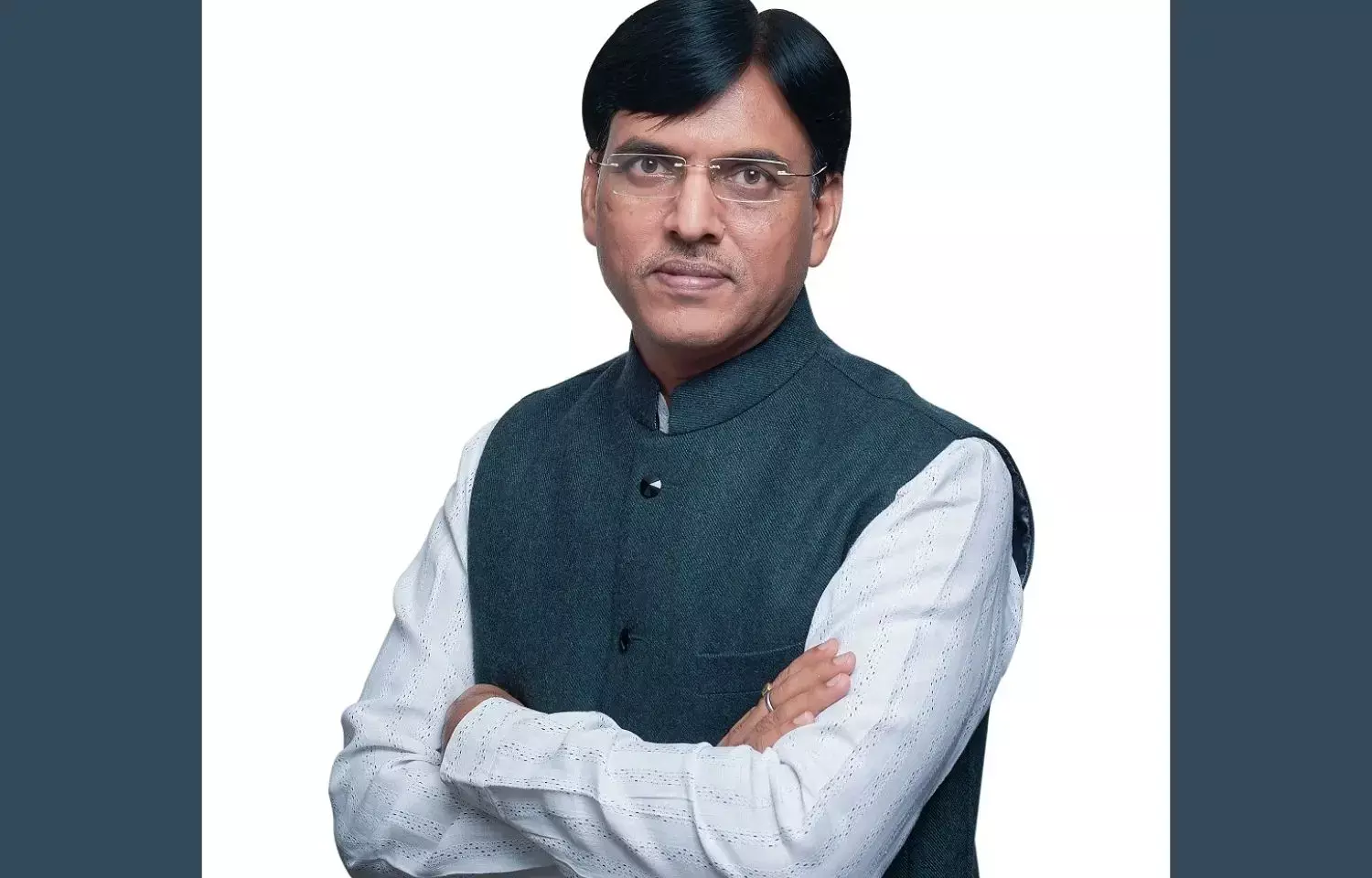- Home
- Medical news & Guidelines
- Anesthesiology
- Cardiology and CTVS
- Critical Care
- Dentistry
- Dermatology
- Diabetes and Endocrinology
- ENT
- Gastroenterology
- Medicine
- Nephrology
- Neurology
- Obstretics-Gynaecology
- Oncology
- Ophthalmology
- Orthopaedics
- Pediatrics-Neonatology
- Psychiatry
- Pulmonology
- Radiology
- Surgery
- Urology
- Laboratory Medicine
- Diet
- Nursing
- Paramedical
- Physiotherapy
- Health news
- Fact Check
- Bone Health Fact Check
- Brain Health Fact Check
- Cancer Related Fact Check
- Child Care Fact Check
- Dental and oral health fact check
- Diabetes and metabolic health fact check
- Diet and Nutrition Fact Check
- Eye and ENT Care Fact Check
- Fitness fact check
- Gut health fact check
- Heart health fact check
- Kidney health fact check
- Medical education fact check
- Men's health fact check
- Respiratory fact check
- Skin and hair care fact check
- Vaccine and Immunization fact check
- Women's health fact check
- AYUSH
- State News
- Andaman and Nicobar Islands
- Andhra Pradesh
- Arunachal Pradesh
- Assam
- Bihar
- Chandigarh
- Chattisgarh
- Dadra and Nagar Haveli
- Daman and Diu
- Delhi
- Goa
- Gujarat
- Haryana
- Himachal Pradesh
- Jammu & Kashmir
- Jharkhand
- Karnataka
- Kerala
- Ladakh
- Lakshadweep
- Madhya Pradesh
- Maharashtra
- Manipur
- Meghalaya
- Mizoram
- Nagaland
- Odisha
- Puducherry
- Punjab
- Rajasthan
- Sikkim
- Tamil Nadu
- Telangana
- Tripura
- Uttar Pradesh
- Uttrakhand
- West Bengal
- Medical Education
- Industry
Prevalence of Iodine Deficiency Disorder: Union Health Minister informs Rajya Sabha of steps taken to control disease

New Delhi: Responding to a series of questions raised about the prevalence of Iodine Deficiency Disorder in the country, the Union Minister of Health and Family Welfare recently apprised the Rajya Sabha about the steps taken by the government to control the disease.
Surveys conducted by the Indian Council of Medical Research, and other Institutions have revealed that no state in the country is absolutely free from the problem of Iodine Deficiency Disorders, informed the Union Minister.
Responding to the question raised on the rising thyroid disorders in the country, the minister informed that as per National Family Health Survey - 5 (2019-21), the prevalence of Goitre and any other thyroid disorders, based on self-reports among the women of 15-49 age group was found to be 3% which is considered as National average.
Also read- Insulin Resistance More Severe In Patients With Primary Hyperparathyroidism: Study
The survey revealed that the prevalence of Goitre and any other thyroid disorders among women was found to be in the range of 4.1% to 8.7% which is more than the National average i.e 3%. The prevalence is highest in states including Kerala, Jammu & Kashmir, Chandigarh, Telangana, Delhi, Laddakh, West Bengal, Andhra Pradesh, Andaman & Nicobar Islands, Tamil Nadu and Puducherry.
In order to prevent & control Nutritional Iodine Deficiency Disorders (IDDs), most commonly Nutritional Goitre, the Government of India is implementing National Iodine Deficiency Disorders Control Programme (NIDDCP) in the country for the entire population. The goals of the programme are to bring the prevalence of IDD to below 5% in the country and to ensure 100% consumption of adequately iodized salt (15ppm) at the household level.
Some of the key measures taken to control IDD under the programme are:-
i. Supply of Iodized salt in place of common salt in the entire country, for human consumption.
ii. Financial assistance to all States /UTs for the establishment of State Iodine Deficiency Disorder Control Cell and State IDD Monitoring Laboratory, which conduct District IDD surveys/resurveys, health education and publicity to create awareness about IDD, promoting consumption of adequately iodated salt. Financial assistance is also given for monitoring of iodine content of salt through a salt testing kit at the household/ community level, by ASHA worker.
iii. Information Education and Communication activities to generate awareness about IDDs and the importance of consumption of Iodised salt among the population in all the States and UTs through various media.
iv. Monitoring of quality of iodised salt at production and distribution level, through Salt Testing Labs working under Salt Commissioner Organistaion and pilot studies to find out the current state of iodination in population.
In response to the issue raised on the shortage of trained Endocrinologists in Government Hospitals, the Minister informed that Trained Endocrinologists are not the only Doctors who treat patients of Thyroid problem. In Government Hospitals, besides Endocrinologists, the treatment of patients of Thyroid problems is also done by Physicians, Head & Neck Surgeons and Pediatricians. Even MBBS Graduate Doctors also attend to and manage patients with Thyroid Disorders.
Also read- Guideline On Hematoma Management After Thyroid Surgery
MA in Journalism and Mass Communication
Exploring and learning something new has always been her motto. Adity is currently working as a correspondent and joined Medical Dialogues in 2022. She completed her Bachelor’s degree in Journalism and Mass Communication from Calcutta University, West Bengal, in 2021 and her Master's in the same subject in 2025. She mainly covers the latest health news, doctors' news, hospital and medical college news. She can be contacted at editorial@medicaldialogues.in


